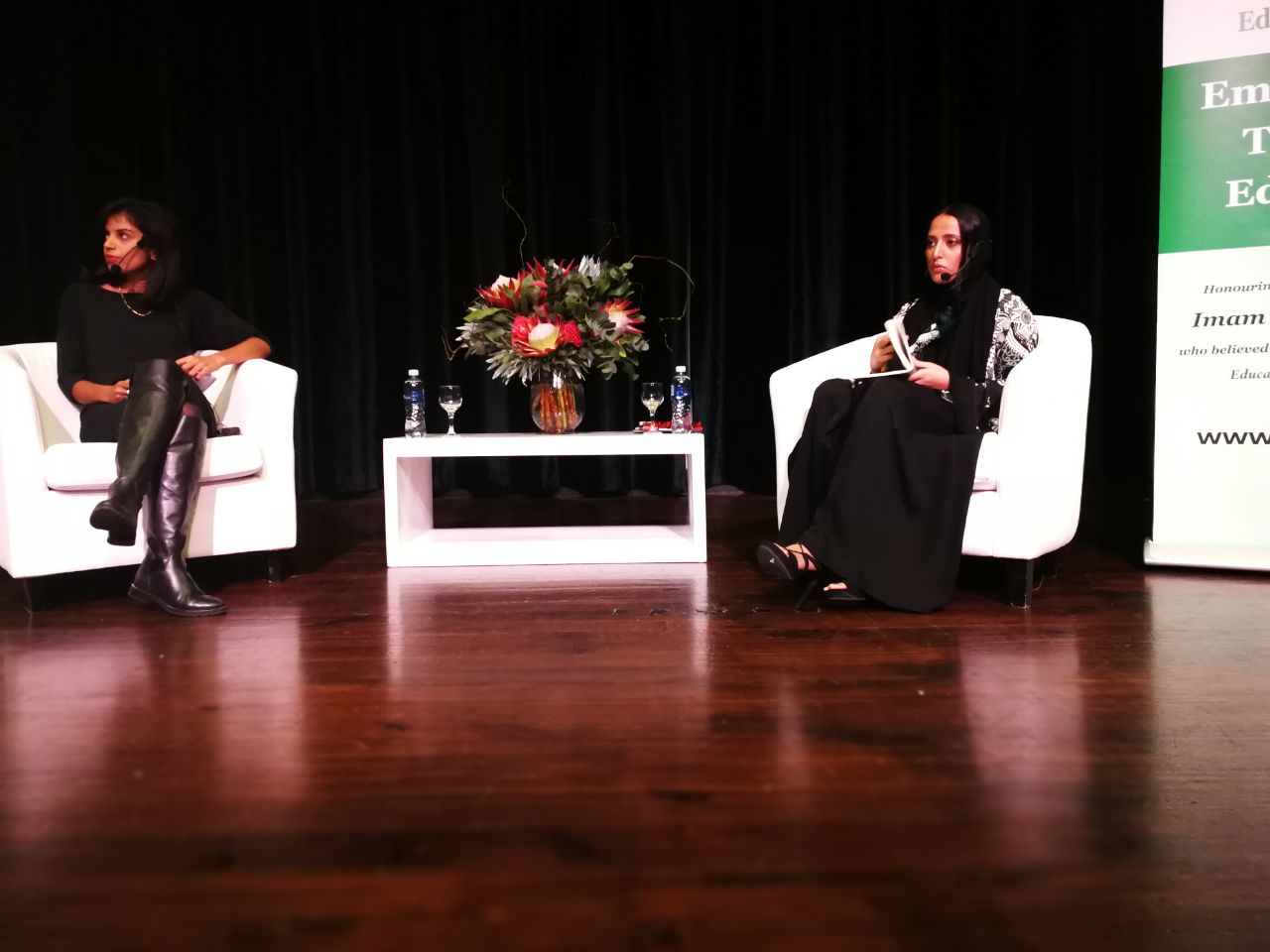Prominent student activist Fasiha Hassan says Imam Abdullah Haron is testament to the fact that the practise of Islam should not be separate to one’s activism. She was addressing a packed crowd at Solly and Zahrah Noor auditorium at Islamia College last night, for the annual Imam Haron Memorial lecture. The former Imam of Stegman Road Mosque in Claremont died in police detention on 27 September 1969.
“One being involved in activism means that through the practise of Islam, we are advocating for social justice. Imam Haron was a revolutionary of his time, openly taking on the apartheid regime. He believed in the education and empowerment of women. He was someone who swam upstream. So we draw so much courage from him. His teachings are perhaps more relevant today than ever before,” she told VOC News in an interview after her talk.
Hassan rose to prominence in 2015 as one of the leaders of the #FeesMustFall and #EndOutsourcing movements that shook tertiary institutions across South Africa. She has featured on various media and debating platforms representing the youth of South Africa in the fight for free, quality and decolonized education.
Hassan, who has a BComm degree, is currently studying towards her post-graduate LLB degree at the University of the Witwatersrand. She was also a recipient of Golden Key International Honors Society for excellence in academics.
Her leadership positions include being the first woman chairperson of the Muslim Students’ Association in 2015 and serving on the executive of the Progressive Youth Alliance at Wits University during the same year.
Most of the evening was spent in conversation with Mail & Guardian journalist Raeesa Pather exploring among other things, women’s rights, activism and their role in the struggle for social justice relating to present day challenges of the abuse of women and children.
As a Muslim woman at the forefront at student activism in South Africa, Hassan believes despite changes in societal attitudes towards women, it is still difficult for women to be taken seriously in male dominated spaces.
“We live in a society that is grossly unequal to women of colour, particularly poor women of colour, who do not have the same opportunities as their white and male counterparts. So for us, it’s about being unapologetic and taking what we need to take, but also paving the way for other women who come after us. Many times, we view women as our enemies. And that can never be the case in such a patriarchal society!”
In South Africa, many women do not have the opportunity to study further and women are relegated to household duties. Women that are qualified in a particular field find it difficult to get employment and very often, without equal pay to her male counterparts. Then, there are societal pressures for career women, such as unrealistic expectations on women to climb the corporate ladder and raise a family.
“It’s about the unspoken things. It’s about how people don’t expect women to be at the top of their game and when they are, they are truthfully shocked. And when you see a woman about to overtake you, many people are unhappy about that.”
On gender based violence and rape culture in South Africa, Hassan believes the re-education of society is needed. Much of the current gender based education is focused on the clothes of girls and avoiding certain spaces, instead of educating young men to respect the social agency of women.
“We need a legal and police system that allows people to report rape without fear. We need re-education to give young women to come forward, share their experiences, and put interventions in place,” she said.
While the social conditions that contribute to gender-based violence in our country are complex and rooted in our divided past, the greater empowerment of women will go a long way to strengthening the fight against women abuse. This will take shape when men change their attitudes towards women, she said.
“Men need to understand that’s its beyond just saying, ‘I’m against rape and domestic violence’. You need to live, eat and breathe and practice that. And you need to empower your partners (female) to allow them to do what it is they need to do.” VOC






 WhatsApp us
WhatsApp us 

